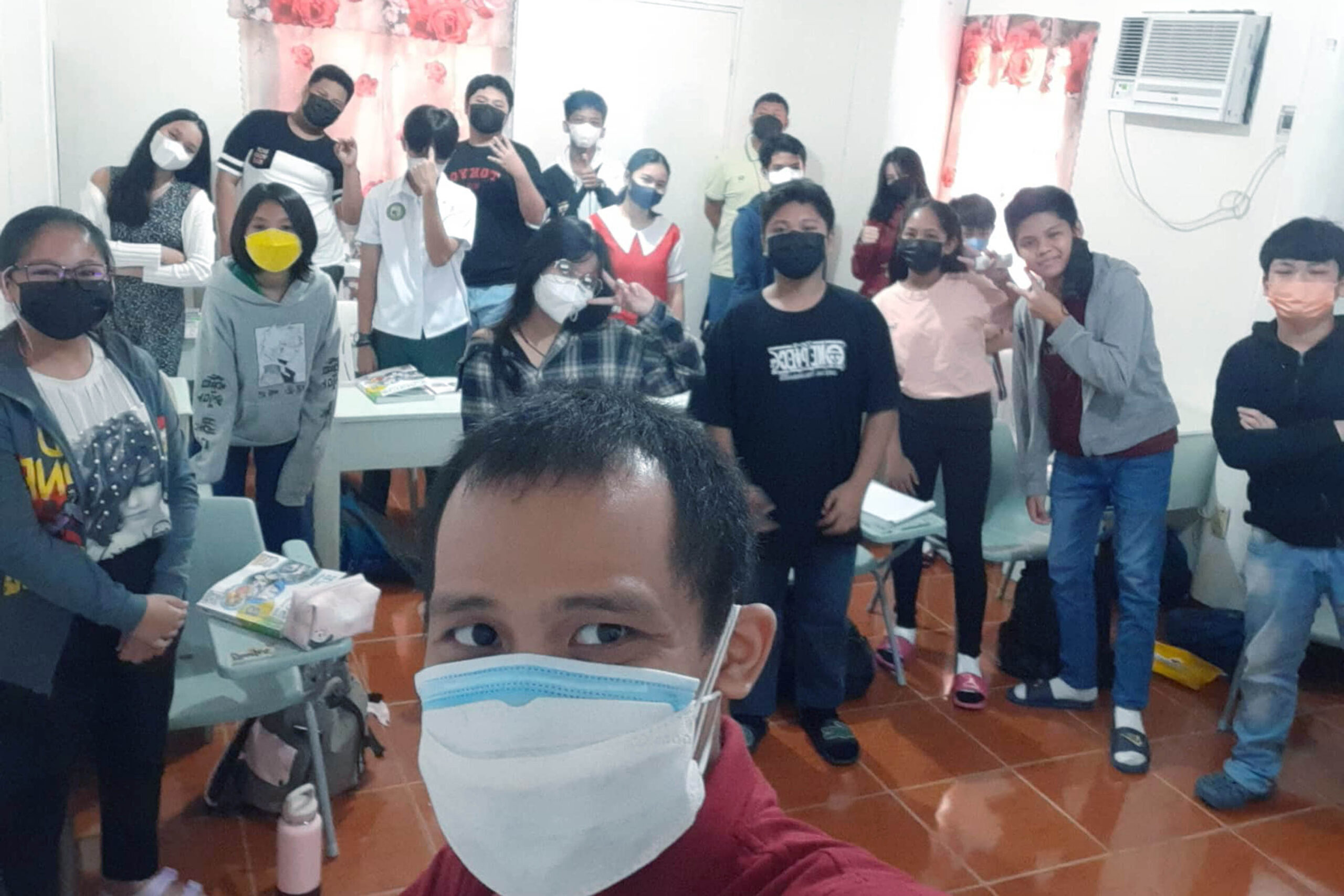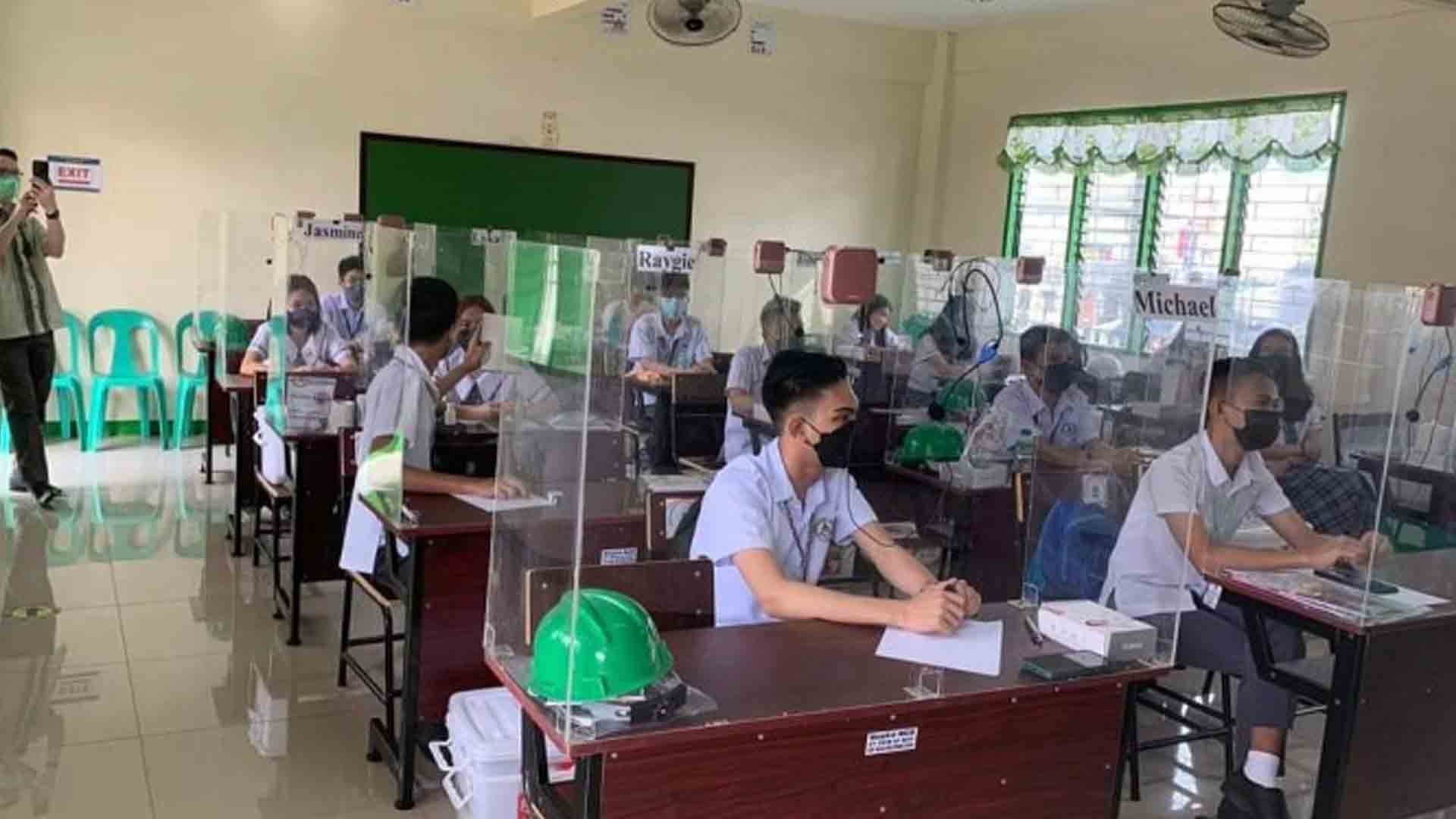Meager salaries, heavy workloads, teaching style adjustments, and different forms of abuse against learners are but a few of the issues that teachers have to deal with on an almost regular basis, even as they are also weighed down by the global pandemic.
But no amount of obstacles could make most of these unsung heroes turn their backs on their calling.
Andre Gere Adsuara, 26, a private school Science teacher of four years, admitted that challenges remain despite the nationwide gradual transition to in-person learning.
“Nakakapagod ang trabaho, sabayan mo pa ng technical issues on the platform to use at sa medium of instruction to use. Sa teacher’s load, flexible naman siya pero challenging ‘yung time constraints and budgeting the time allotted to use in teaching (The work is tiring, not to mention, the technical issues on the platform and medium of instruction used. As to our work load, it’s flexible but the time constraint is challenging, and you need to budget the time for teaching),” he told the Philippine News Agency.
However, Adsuara said he draws strength from the genuine appreciation of his students.
“Na-a-appreciate ka ng mga estudyante mo kapag may nauunawaan sila sa specific topic… sa pagsasabi ng salamat sa pagtuturo at sa paggabay nila sa mga aktibidades. Ang sarap sa pakiramdam na binibigyan ka ng halaga, kahit sa maliit na bagay (The students appreciate you when they understand a specific topic. They express gratitude for your teaching and guidance in their activities. It feels so good to be valued, even in the simplest things),” he added.
Adsuara feels challenged and excited to provide learners with progressive teaching strategies.
“Really challenging and exciting. Challenging, because I need to learn more on the technical side and interact with students. Exciting because I can see my students ready to learn and enjoy the interaction and guidance,” he said in mixed English and Filipino.
Like Adsuara, Argel de Leon Mallari, 39, a public school Technology and Livelihood Education teacher for almost a decade, said he is happy that face-to-face classes are back, though the transition came with new teaching styles that teachers like him need to adapt to.
Mallari said he even attended earlier a three-day seminar called, “Be Internet Awesome National Rollout,” to ensure that he will provide quality teaching for kids through digital upskilling.

“We really need to adapt to the new trends and teaching style… Kailangan makasabay si teacher sa mga bagay na interesting sa mga bata… Malaki ‘yung naitutulong nito (seminar) para mas mag-improve pa yung teaching strategies na alam ko (The teacher should really catch up on what’s interesting for the kids. This seminar significantly helps improve my teaching strategies) and also how to be safe using the Internet,” he said.
Asked how he deals with the perennial problems plaguing the education sector, Mallari said always thinking about the welfare of children fuels him to press on.
“We should be positive thinkers. I believe that there is a right timing for everything. Hindi dapat na maapektuhan ng mga issues na ito ‘yung kalidad ng pagtuturo sa ating mga mag-aaral (and these issues should not affect the quality of education we are providing our learners),” he added.
Despite these challenges on the ground, both Adsuara and Mallari called for continued support from state authorities so the quality of education could further improve as the country recovers from the pandemic.
Adsuara said collaborations between the government and private schools would speed up improvements.
“Mensahe ko sa (My message to the) government is to establish a dialogue with the private schools to enhance cooperation and have the confidence to strengthen programs for the private school teachers,” he said.
For his part, Mallari sought support from the government to also help prevent job mismatch among graduates, something that the Department of Education is already trying to address by reviewing the Kinder-Grade 12 curriculum.
“I hope the government will provide enough school classroom laboratories, tools, and equipment that students can use to study. Sa ngayon po kasi ay marami pa rin po tayong kakulangan sa mga classroom ganun na rin ‘yung mga actual tools and equipment na kailangan ng mga bata para mas mag improve ‘yung kanilang skills at mas matuto (Nowadays, we are still lacking on classrooms. Also, we lack actual tools and equipment needed by learners to improve their skills and learning), he said.
As of now, the DepEd has already finished reviewing the K-10 (Grade 10) curriculum, while the review for Grades 11 to 12 will start next month with the aim of further improve mathematics, science, technology, and skill-based curriculum.
“Ang promise po ng K-12 (Our promise in K-12) is that when our learners graduate after Grade 12, they are employable pero hindi po nangyayari yan sa ngayon. So ang direksyon po natin is to try to align yung mga (but it’s not happening now. So the direction is to align) skills , especially tech voc track, yung mga skills na nakukuha nila sa (their acquired skills in) Grade 12 to the industry demand,” DepEd spokesperson Michael Poa had said. (PNA)







